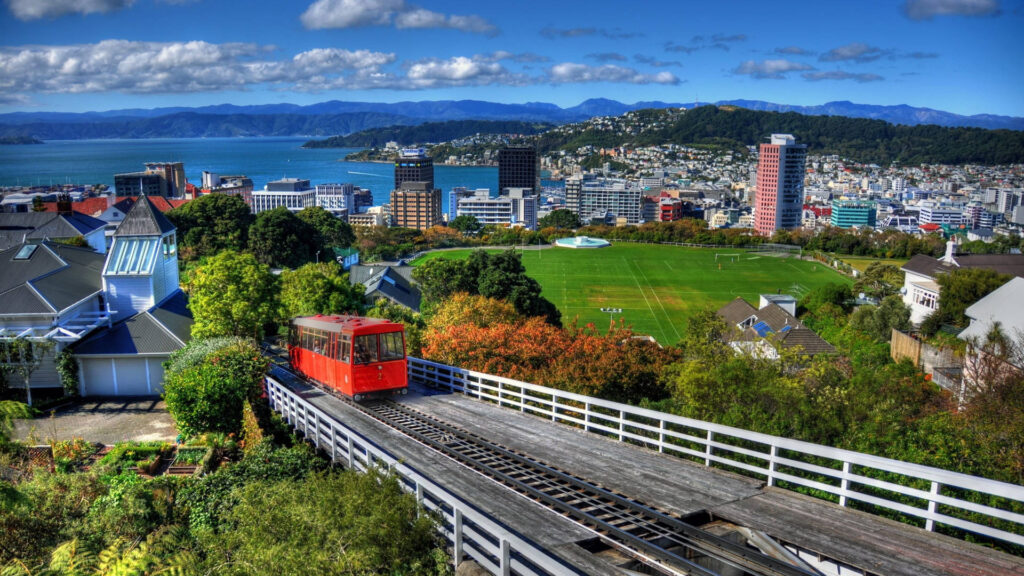This week, the Global Immigration team at BaeGH is sharing key updates on recent immigration developments in Denmark, Finland, Hong Kong, New Zealand, the Philippines, and the United States.

Denmark: New Working Holiday Quota Period for Chilean and Argentinian Citizens
Starting 1 March 2025, a new quota period will begin for Working Holiday residence permits for citizens of Chile and Argentina. The program allows up to 150 residence permits annually, distributed across two periods.
A quota year runs from March of one year to February of the next. The quota is allocated as follows:
- March to August: Up to 75 residence permits can be granted.
- September to February: The remaining 75 permits (or any unused spots from the first period) can be issued.
First-Come, First-Served Basis
Residence permits will be processed in order of application submission. Once the first 75 permits are granted, no additional permits will be issued until 1 September 2025. If the full quota is reached, any remaining applications will be rejected, and the SIRI processing fee will be refunded. However, applicants should note that fees paid to VFS or local representations in Chile and Argentina will not be refunded in case of rejection.
Application Appointments
Since the quota period opens on a Saturday (1 March 2025), applicants should note the following:
- VFS Santiago, Chile: Online appointment booking opens on Monday, 3 March 2025, at 9 AM (UTC -4).
- VFS Buenos Aires, Argentina: Online appointment booking opens on Wednesday, 5 March 2025, at 9 AM (UTC -3), due to public holidays on 3 and 4 March.
Applicants are encouraged to plan accordingly to secure their spot in the Working Holiday program.

Finland: Backlog in Family-Based Residence Permit Applications
The Finnish Immigration Service (Migri) has reported a significant backlog in processing family-based residence permit applications, with over 15,000 applications currently awaiting a decision. Applicants will be contacted if additional information is needed.
Background & Processing Statistics
- In 2024, nearly 50,000 family-based applications were submitted, an increase of 10,000 compared to 2023.
- Over 46,000 decisions were made in 2024, exceeding the previous year’s total by 6,000.
- 65% of applications submitted in 2024 were processed within three months.
- Positive decisions were issued for 91% of first-time permits and 97% of extended permits.
Current Processing Times & Delays
While most applications are processed within three months, some delays remain:
- 2,000 applications have been pending for more than nine months.
- 1,200 applications from students’ family members have exceeded the 90-day statutory limit.
- Migri will prioritize applications that have exceeded the legal processing timeframe.
Key Causes of Delays
- Absence of a valid passport:
- Applicants must have a passport from their country of nationality to be granted a residence permit.
- Those without a passport should obtain one as soon as possible, as the lack of a valid passport significantly delays processing.
- A passport renewal or issuance delay does not qualify for expedited processing.
- Incomplete applications or missing documents:
- Applicants should ensure all required information is provided, including proof of sufficient financial resources where applicable.
- Legalization of documents is mandatory before submission.
- Cases where a family member in Finland lacks a valid residence permit will remain unresolved until that family member’s status is approved.
Applicants are encouraged to double-check their applications and ensure all necessary documents are submitted to avoid further delays.

Hong Kong: New Application Fees and Increased Visa Fees for Talent & Investment Admission Schemes
As part of the 2025-26 Budget, the Hong Kong government has introduced a new application fee and increased visa/entry permit fees for various talent and capital investment admission schemes. These changes aim to align costs with the “user pays” principle.
Implementation & Key Changes
The Immigration (Amendment) Regulation 2025 was published in the Gazette and took effect at 11 AM on 26 February 2025. The new fees apply to both principal applicants and their dependents under specified admission schemes.
- New application fee:
- HKD 600 per application for entry, change of stay conditions, or extension of stay.
- Revised visa/entry permit fees:
- HKD 600 for stays of 180 days or less (previously HKD 230).
- HKD 1,300 for stays of 181 days or more (previously HKD 230).
Schemes Affected
The revised fees apply to the following admission schemes:
- Top Talent Pass Scheme
- General Employment Policy
- Admission Scheme for Mainland Talents and Professionals
- Quality Migrant Admission Scheme
- Immigration Arrangements for Non-local Graduates
- Admission Scheme for the Second Generation of Chinese Hong Kong Permanent Residents
- New Capital Investment Entrant Scheme
- Capital Investment Entrant Scheme
- Technology Talent Admission Scheme
- Vocational Professionals Admission Scheme
Fees for other visa types and entry permits remain unchanged.

New Zealand: Primary Teachers Added to Straight to Residence Pathway
On 25 February 2025, the New Zealand government announced that primary teachers will be added to the Straight to Residence pathway on the Green List, effective 26 March 2025.
Key Changes & Benefits
- Previously, primary teachers were on the Work to Residence pathway, requiring two years of work before applying for residency.
- With this update, eligible primary teachers can apply for residency directly from offshore if they have a job offer from an accredited employer.
- This change aims to address teacher shortages across New Zealand, particularly in Auckland and Northland.
- The new policy applies to primary, intermediate, and Māori-medium equivalent teaching roles.
This adjustment streamlines the residency process for qualified educators, supporting efforts to attract skilled teachers to New Zealand.
New Zealand: Parent Resident Visa Category Update
Immigration New Zealand has announced a one-time increase in the Parent Resident Visa quota to accommodate applications that have already been approved in principle for the current financial year.
Key Updates
- Normally, 2,500 visas are issued annually under the Parent Resident Visa category:
- 2,000 visas for applicants from the ‘queue’ Expression of Interest (EOI) pool.
- 500 visas for applicants from the ballot EOI pool.
- For the 2024/2025 financial year (ending 30 June 2025), more applications have been approved in principle than usual.
- To address this, the Minister of Immigration has authorized a one-time increase of 331 additional visas for the queue EOI pool, raising the total to 2,331 for this year.
- The ballot cap remains unchanged at 500 visas.
Next Steps for Applicants
- Immigration New Zealand will contact queue EOI applicants who are selected this financial year.
- The annual 2,500-visa limit will remain in place for the 2025/2026 financial year.
This temporary increase aims to process more eligible applications and reduce wait times for families seeking residency in New Zealand.

Philippines: Revised Work Permit Rules for Foreign Nationals
Effective 10 February 2025, the Department of Labour and Employment (DOLE) has introduced updated regulations for issuing Alien Employment Permits (AEPs) under Department Order No. 248. These changes aim to enhance transparency and ensure local labor market needs are met before hiring foreign nationals.
Key Updates
- Job Posting Requirements
- Employers must now post the job vacancy and the foreign national’s name on:
- PhilJobNet (the government’s job portal),
- The Public Employment Service Office (PESO) or Job Placement Office (JPO),
- A newspaper of general circulation (as previously required).
- Employers must now post the job vacancy and the foreign national’s name on:
- AEP Application Timelines
- Applications must be submitted within 15 to 45 days after the job posting.
- Employers must file the application within 15 calendar days (previously 10 working days) from contract execution or appointment.
- Exemptions & Certifications
- Foreign nationals hired as corporate officers are exempt from the job posting requirement.
- Those exempt from securing an AEP may request a Certificate of Exemption from DOLE.
- Processing & Entry Requirements
- AEP applications can be submitted and processed while the foreign national is still abroad.
- However, the AEP will only be issued after entry into the Philippines with the appropriate pre-arranged employment visa (9G visa) or working visa.
- Economic Needs Test (ENT) Implementation
- DOLE will assess if hiring a foreign national is necessary based on:
- Labor market conditions,
- Job specialization and technological expertise,
- Industry requirements (especially for employers with fiscal incentives or operating in strategic sectors).
- DOLE will assess if hiring a foreign national is necessary based on:
- Proof of Qualifications
- Foreign nationals must now submit educational credentials, work experience, professional licenses, skills certifications, or specialized training as proof of qualifications.
These revised regulations strengthen employment verification processes and ensure that foreign hires are justified based on labor market demands.

United States: Temporary Protected Status (TPS) Amendments for Haiti
On 20 February 2025, the Secretary of Homeland Security issued a revision to the 1 July 2024 notice that extended and redesignated Haiti for Temporary Protected Status (TPS).
Key Changes
- The extension and redesignation period for Haiti’s TPS has been reduced from 18 months to 12 months.
- The new TPS expiration date is now 3 August 2025 (previously 3 February 2026).
- The initial registration period for new TPS applicants under the redesignation will now end on 3 August 2025, instead of 3 February 2026.
These amendments shorten the protection period for Haitian nationals, impacting those seeking TPS status or renewal.
